Films with theme "Documentary films about historical events", sorted by revenue

A Film Unfinished (2010)
, 1h29Origin Israel
Genres Documentary, Historical
Themes Films about films, Films about racism, Films about religion, Documentary films about business, Documentary films about the film industry, Documentary films about racism, Documentary films about law, Documentary films about war, Documentary films about historical events, Documentaire sur une personnalité, Documentary films about religion, Political films, Films about Jews and Judaism, Documentary films about World War II, Documentary films about films
Actors Alexander Beyer, Rüdiger Vogler
Ce sont des séries de bobines de films de 35 mm allemandes, anonymes, sans générique, portant la seule inscription : Das Ghetto, retrouvées dans les années 1950 qui sont à l'origine du film de Yahel Hersonski. Ces bobines constituent un « documentaire » allemand sur le ghetto de Varsovie durant la Seconde Guerre mondiale. Dans les années 1990, la découverte d'une bobine manquante viendra éclairer la propagande qui se cachait dans les premières images retrouvées et le véritable but des Allemands qui réalisèrent ces images.

The Hornet's Nest (2014)
, 1h37Origin USA
Genres War, Documentary, Action, Historical
Themes Films about writers, Films about journalists, Films about terrorism, Documentary films about war, Documentary films about historical events, Political films
Le Guêpier est un film révolutionnaire en immersion qui raconte l'histoire, à partir d'images réelles sans précédent, d'un groupe d'élite de soldats américains envovés dans une mission dangereuse au plus profond d'une des vallées les plus hostiles d'Afghanistan. Ce qui devait être au départ une opération d'une journée s'est transformé en neuf jours intenses de combat éprouvant contre un ennemi invisible et hostile sur un terrain difficile où aucune troupe étrangère n'avait osé pénétrer auparavant. Deux journalistes embarqués, un père et son fils ont courageusement suivi les troupes sur le champ de bataille le plus violent et le plus ensanalanté du conflit. Il en résulte une expérience cinématographique brute et intense qui offre au public une vision authentique et émouvante de l'héroïsme au centre de cette histoire captivante.

The Unknown Known (2013)
, 1h36Directed by Errol Morris
Origin USA
Genres Documentary, Historical
Themes Documentary films about historical events, Documentaire sur une personnalité, Documentary films about politics, Political films
Actors Errol Morris
The major portion of the film is spent addressing excerpts from the millions of memos, nicknamed 'Yellow Perils' by his first Pentagon staff and 'Snowflakes' by the second, that Rumsfeld wrote during his time as a congressman and advisor to four different presidents, twice as United States Secretary of Defense. It also focuses on a response Rumsfeld gave to a question at a U.S. Department of Defense news briefing on February 12, 2002 about the lack of evidence linking the government of Iraq with the supply of weapons of mass destruction to terrorist groups. The content of the memos are varied, covering everything from the aftermath of Watergate, to the Abu Ghraib torture and prisoner abuse scandal, to the definition of the word “terrorism”. Morris returns to the motif of snowflakes swirling within a snow globe throughout the documentary as he discusses the context of the memos with Rumsfeld, notes to which the Defense Secretary gave him limited access while preparing the film, and which Rumsfeld agrees to read aloud on camera.

Countdown to Zero (2010)
, 1h30Origin USA
Genres Documentary
Themes Environmental films, Documentary films about environmental issues, Documentary films about war, Documentary films about historical events, Documentary films about nuclear technology, Documentary films about politics, Documentary films about technology, Political films
Actors Gary Oldman

Taxi to the Dark Side (2007)
, 1h46Directed by Alex Gibney
Origin USA
Genres Documentary
Themes Films about terrorism, Documentary films about law, Documentary films about war, Documentary films about historical events, Documentaire sur une personnalité, Documentary films about politics, Political films
Actors Alex Gibney
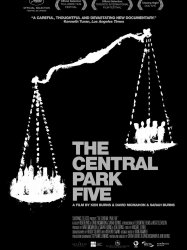
The Central Park Five (2012)
, 1h59Directed by Ken Burns
Origin USA
Genres Documentary, Crime
Themes Prison films, Documentary films about law, Documentary films about historical events, Documentaire sur une personnalité, Documentary films about cities, Films about capital punishment

American Dream (1990)
, 1h40Directed by Barbara Kopple
Origin USA
Genres Documentary
Themes Films about the labor movement, Documentary films about historical events, Documentary films about politics, Political films
The film is centered on unionized meatpacking workers at Hormel Foods in Austin, Minnesota between 1985 and 1986. Hormel had cut the hourly wage from $10.69 to $8.25 and cut benefits by 30 percent despite posting a net profit of $30 million. The local union (P-9) opposed the cut, but the national union, the United Food and Commercial Workers, disagreed with their strategy.

Outrage (2009)
, 1h29Directed by Kirby Dick
Origin USA
Genres Drama, Thriller, Documentary, Action
Themes Films about sexuality, LGBT-related films, Documentary films about historical events, Documentaire sur l'homosexualité, Documentaire sur une personnalité, Documentary films about politics, Political films, LGBT-related films, LGBT-related film
Actors Larry Kramer, Ronald Reagan
Outrage argues that several American political figures have led closeted gay lives while supporting and endorsing legislation that is harmful to the gay community. The film examines mass media's reluctance to discuss issues involving gay politicians despite many comparable news stories about heterosexual politicians and scandals. Outrage describes this behavior as a form of institutionalized homophobia that has resulted in a tacit policy of self-censorship when reporting on these issues. The film is based on the work of blogger Michael Rogers and his site BlogActive.com.
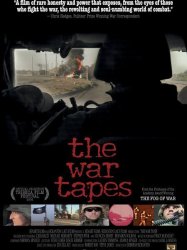
The War Tapes (2006)
, 1h37Genres Documentary
Themes Documentary films about war, Documentary films about historical events, Political films
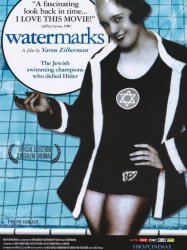
Watermarks (2004)
, 1h20Genres Documentary, Historical
Themes Films about racism, Films about religion, Sports films, Documentary films about sports, Documentary films about racism, Documentary films about law, Documentary films about historical events, Documentaire sur une personnalité, Documentary films about religion, Films about Jews and Judaism
L’Hakoah (« La force » en hébreu), fut fondé à Vienne en 1909, par réaction au célèbre paragraphe aryen qui interdisait aux clubs de sport autrichiens d’intégrer des athlètes juifs et devint l’un des plus grands clubs de sport de l’Europe de l’entre deux guerres. Dans les années 30, les plus grands succès de l’Hakoah furent remportés par ses nageuses, qui dominaient la compétition nationale en Autriche. Après l’Anschluss, les Nazis ont fait fermer le club. Les nageuses réussirent à fuir le pays avant que la guerre n’éclate, grâce à une opération de sauvetage organisée par les sportifs de l’Hakoah. 65 ans plus tard, 7 membres de l’équipe féminine de natation se retrouvent dans leur ancienne piscine à Vienne, un voyage qui évoque à la fois les souvenirs de leurs jeunes années, leur féminité affirmer et qui leur permet de renouer les liens de toute une vie.
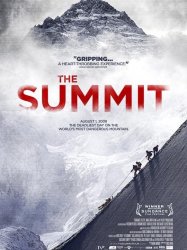
The Summit (2013)
Genres Documentary, Adventure
Themes Sports films, Documentary films about sports, Documentary films about historical events, Disaster films
The disaster occurred between 1 and 2 August 2008 and cost 11 lives. During the ascent of the summit a climber falls to his death in the Bottleneck. When three climbers try to collect the body one of them also falls to his death. These occurrences lead to a delay in the summit attempt that strands several climbers for the night above the Bottleneck, in the "deathzone" (above 8000 meters), due to a serac fall killing one more climber. The documentary takes a closer look at the more unknown happenings during the night and the next day leading to another eight deaths.
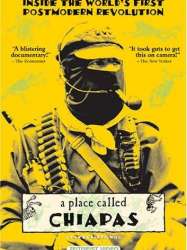
A Place Called Chiapas (1998)
, 1h29Genres Documentary
Themes Documentary films about law, Documentary films about historical events, Documentaire sur une personnalité, Documentary films about politics, Political films

The Agronomist (2004)
, 1h30Directed by Jonathan Demme
Origin USA
Genres Biography, Documentary
Themes Seafaring films, Transport films, Documentary films about historical events, Documentaire sur une personnalité, Documentary films about politics, Political films
Actors Ronald Reagan
Le journaliste Jean Dominique, militant avec sa femme Michèle Montas pour une information accessible par Radio Haïti-Inter en Haïti, relate différents épisodes de sa lutte. Le récit direct et honnête qu’il fait, à partir de 1986 à son ami Jonathan Demme et le tournage dans le pays, montrent toute la sympathie et la solidarité que réserve le peuple haïtien à ceux qui prennent réellement son parti, en même temps que le caractère périlleux de la promotion de l’information libre dans le pays. Combattant et exilé, celui qui se faisait appeler l’agronome, en fonction de sa formation de base, n’a jamais interrompu sa lutte jusqu’à son assassinat en 2000.
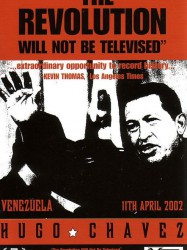
Genres Documentary
Themes Politique, Documentary films about historical events, Documentary films about politics, Political films
The Revolution Will Not Be Televised opens in 2001 with footage of Chávez as he tours the country. Met with "popular enthusiasm", he speaks at rallies, decrying neoliberalism and the international community's attacks on his character. The film outlines Chávez's rise to power, before covering his day-to-day routine and appearances on his television show, Aló Presidente, which includes a phone-in for citizens to speak with the president. Chávez outlines his aspiration to be seen as a modern-day Bolívar. Clips from Venezuelan and United States news reports demonstrate a "relentless campaign" against the president.
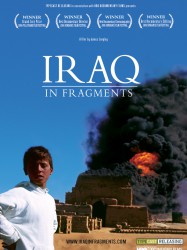
Iraq in Fragments (2006)
, 1h34Directed by James Longley
Origin USA
Genres Documentary
Themes Documentary films about war, Documentary films about historical events, Political films
 Connection
Connection